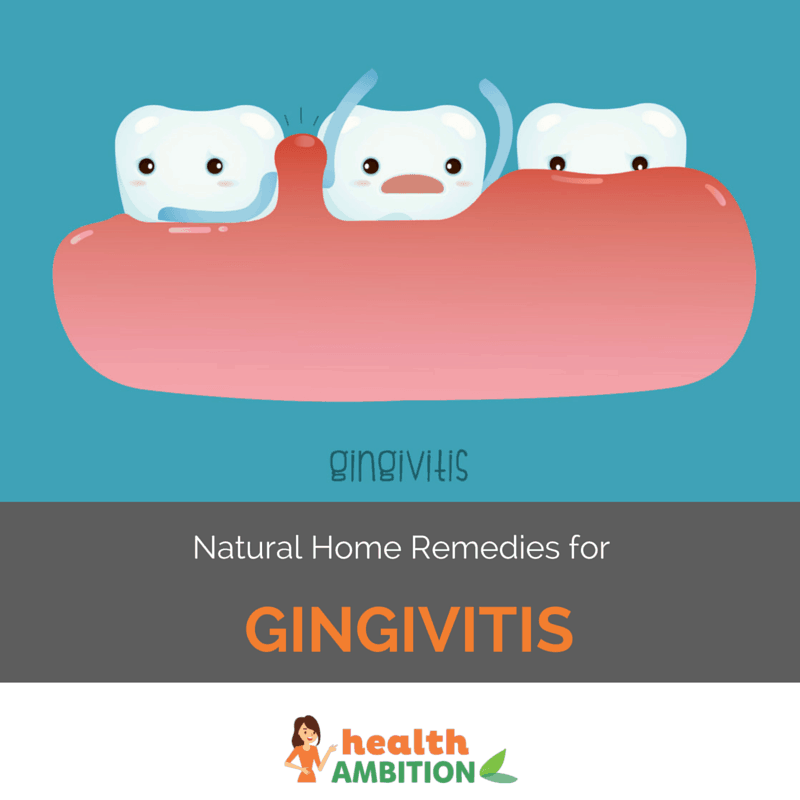
My husband recently went to the dentist for the first time in years and came home pretty bummed. When I inquired what was wrong, he mumbled something about gingivitis. Eek! Just the name sounds a bit icky doesn’t it?
My husband admitted that when the doctor brought it up that he was embarrassed. He hadn’t been to the dentist in so long because he loathes the dentist. I can’t blame him, but I for one know the importance of oral hygiene! My husband on the other hand – not so much.
While he brushes of course, he’s not the best at remembering to floss. Unfortunately just brushing alone may not prevent oral conditions like gingivitis. The bummer about the condition is that you can kind of skate by on minimal oral hygiene without knowing you have an issue.

As soon as he told me what was going on I hopped on my computer to figure out how we could fix this at home, naturally. If you’re looking for your own home remedies for gingivitis, you’ve come to the right place.
What is Gingivitis?
According to the Mayo Clinic, Gingivitis is a common form of gum disease, also known as periodontal disease. Gingivitis can cause irritation, redness, and inflammation of your gums.
Because this condition can be mild, you might not immediately be aware that you have it. This is why regular dental checkups are integral to the health of your gums and teeth. Gingivitis should be addressed and treated right away and that can’t happen unless you are diligent about your bi-yearly checkups.
According to the Mayo Clinic, untreated and severe gingivitis “can lead to much more serious gum disease and eventual tooth loss.” No thank you!
If you’d like to watch a guided tour of the symptoms and treatments of gingivitis, check this video out or else read on.
What Causes Gingivitis?
According to the National Institute of Dental and Craniofacial Research, Gingivitis occurs when plaque and tartar remain on the teeth for an extended period of time. The bacteria that come along with the plaque and tartar can cause inflammation, which is known as gingivitis (any condition ending with “-itis” describes inflammation).
The Mayo Clinic states that the most common cause of gingivitis is poor oral hygiene. If you are not flossing, brushing and rinsing regularly, as well as getting consistent checkups at your dentist, then you run a high risk of having plaque, tartar and bacteria just hanging out on your teeth.
What Are The Symptoms of Gingivitis?
As mentioned, gingivitis can often go undetected. I don’t know about you, but I’m not too intimate with the inner-workings of my mouth. I don’t spend much time looking in there aside from making sure I don’t have spinach in my teeth.

For the purposes of oral health though, it’s good to know what your teeth and gums are supposed to look like. According to the Mayo Clinic, “Healthy gums are firm and pale pink. If your gums are puffy, dusky red and bleed easily, you may have gingivitis.”
Again, because gingivitis is rarely painful, you might have it without even knowing it, just like my poor husband. The American Dental Association details out some symptoms of periodontal disease to keep an eye out for, including:
- Red gums
- Swollen gums
- Gums that bleed easily (while brushing or flossing)
- Gums that seem to be pulling away from the teeth.
- Consistently bad breath
- Pus between teeth and gums
- Loose teeth
- Teeth that begin to fit together differently when you bite
- Change in how your dentures fit
Gingivitis is an early stage periodontal condition, but without treatment can develop into full blown periodontitis which is an advanced oral disease. The good news is that if this condition is caught early enough, it can be reversed.
With some more frequent and attentive care from your dentist or some home remedies for gingivitis, you can get your teeth and gums back on track in no time.
How Will My Dentist Treat Gingivitis?
Your dentist will notice if you are an unsuspecting victim of gingivitis by examining your mouth, gums and teeth and looking for anything out of the ordinary such as the symptoms described above.
He or she may notice hardy plaque or tartar at the base of your teeth, alerting him to the risk of gingivitis. If this or any of the symptoms above are noticed, your dentist will likely discuss treatment of gingivitis with you.

According to the New York Times, no further testing is usually necessary. If the dentist thinks your case is advanced, they might suggest a dental x-ray to make sure the disease hasn’t spread to the supporting structure of your teeth.
The next step is for the dentist to thoroughly clean your teeth and remove all visible plaque and tartar deposits. Then, as always, your dentist will remind you about the importance of brushing and flossing regularly. Only maybe this time, you’ll listen.
It may be recommended that you continue to come see the dentist twice per year, or more depending on the severity of your situation. Antibacterial mouthwashes are often suggested as well.
After a good cleaning and few weeks of proper oral hygiene, your symptoms should recede. However it’s super important you keep up your disciplined behaviour or gum disease can return.
If you want to be extra safe, after leaving the care of your doctor, you can also opt to try some home remedies for gingivitis. As always, I’ll warn you to never try anything I suggest without consulting with your physician or dentist first.
Home Remedies for Gingivitis
I absolutely love when there are items already in my home that I can use to treat health conditions or disease. The same goes for gingivitis. You likely already have plenty of ingredients in your kitchen or home that can help treat and prevent gingivitis from returning. Here are some ways to treat gingivitis at home.
Lemon Juice
Lemon juice is a common kitchen ingredient that can actually benefit your oral health too. According to WikiHow, lemon juice provides anti-inflammatory benefits. Lemons also contain vitamin C which is known to help fight off infection.
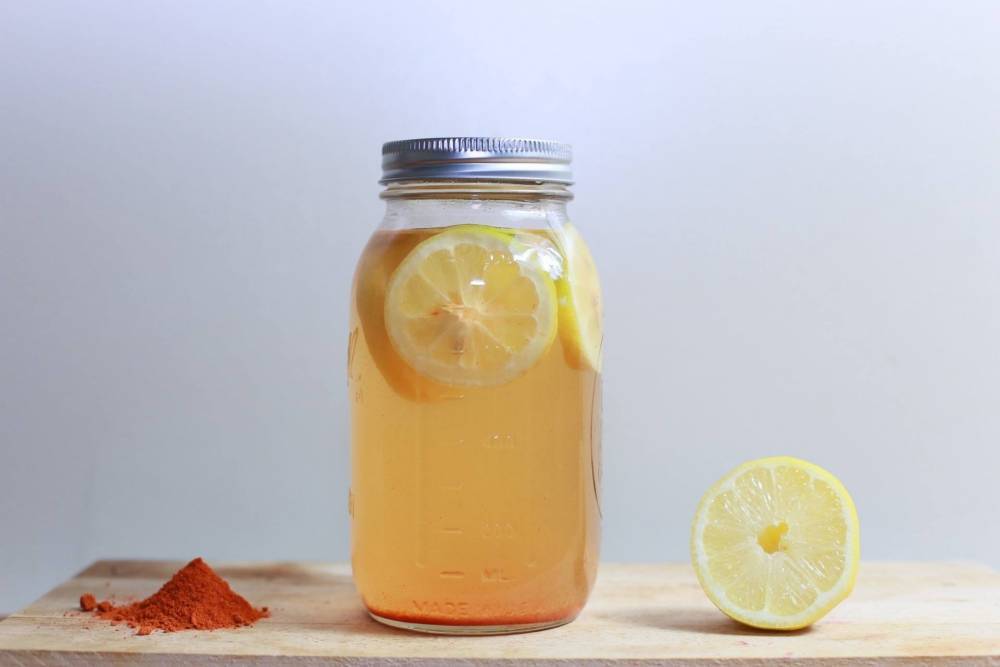
To treat your gums with lemon juice, they suggest making a paste with a mixture of salt and the juice of one lemon. Mix well and apply it to your gums and teeth, then sit a few minutes until you gargle with warm water as a rinse.
Always be careful not to use lemon juice too frequently. Due to its highly acidic nature it can break down your tooth enamel.
Aloe Vera
Aloe vera, like lemon juice, has also been proven to have anti-inflammatory properties as well as a positive effect on your oral health. It’s a plant that has been used for centuries for medicinal purposes like wound healing.

A study was carried out recently with three groups of patients who were diagnosed with plaque-induced gingivitis. Group 1 rinsed with aloe vera mouthwash only. Group 2 was treated with scaling (a dental cleaning procedure). Group 3 rinsed with aloe vera mouthwash and underwent scaling.
While all three groups showed some reduction in gingival inflammation, it was most apparent in the aloe vera and scaling group. This mix sounds like a great tactic for shutting down gingivitis in your life.
Oil Pulling
Oil pulling with coconut oil has been all the rage in recent years. If you don’t know already, oil pulling is when you swish coconut oil around in your mouth. According to this article, it is said to cure oral and systemic diseases but there isn’t much evidence of that yet.

This recent study in the National Library of medicine evaluated what, if any, affect coconut oil pulling has on plaque-induced gingivitis. A group of adolescents with the condition utilized oil pulling for 30 days. It was found that there was a “statistically significant decrease in the plaque and gingival indices was noticed from day 7 and the scores continued to decrease during the period of the study.”
If coconut oil can decrease plaque formation, I’m willing to start adding oil pulling to my routine just in case! Lucky for me, I accidentally just purchased some organic coconut oil in bulk from Amazon. Ooops!
Baking Soda
Baking soda has long been revered as an amazing agent for cleaning teeth, however there is really no evidence that baking soda has any positive effect on oral health. I want to mention it here because it does have a positive effect for those undergoing cancer treatments.
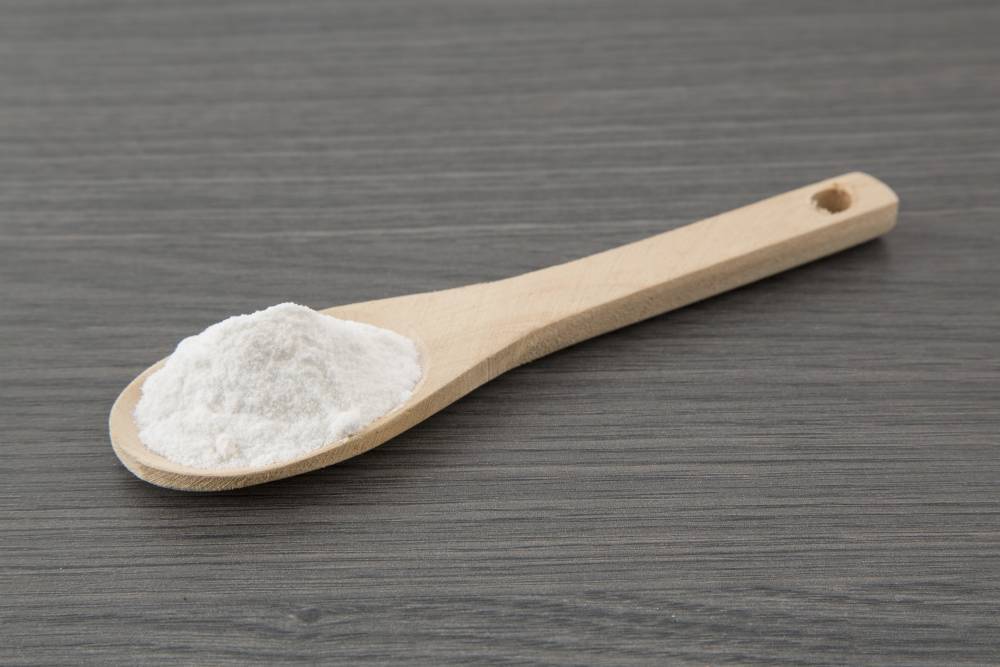
Gum disease can happen more easily when undergoing cancer treatment. When it comes to your mouth, some common side effects of cancer treatment include:
- Sores in your mouth
- Dry mouth
- Sensitive gums
- Gum disease
- Jaw pain
- Infection
According to the American Dental Association, rinsing your mouth out before and after cancer treatments will be highly beneficial to your oral health. The National Institutes of Health suggests this mixture for rinsing out your mouth:
- 1 teaspoon of baking soda in 1 cup water or
- ½ teaspoon salt and 2 tablespoons of baking soda in 4 cups of water
Turmeric
Turmeric is a popular spice that has been used in Asia for thousands of years. It is said to play a major part in both Siddha medicine and Ayurvedic and Chinese medicines.
When it comes to periodontal disease, turmeric is said to have some great benefits. This LiveStrong article states that turmeric contains curcumin. Curcumin is a “key constituent known for its antioxidant and anti-inflammatory effects.”
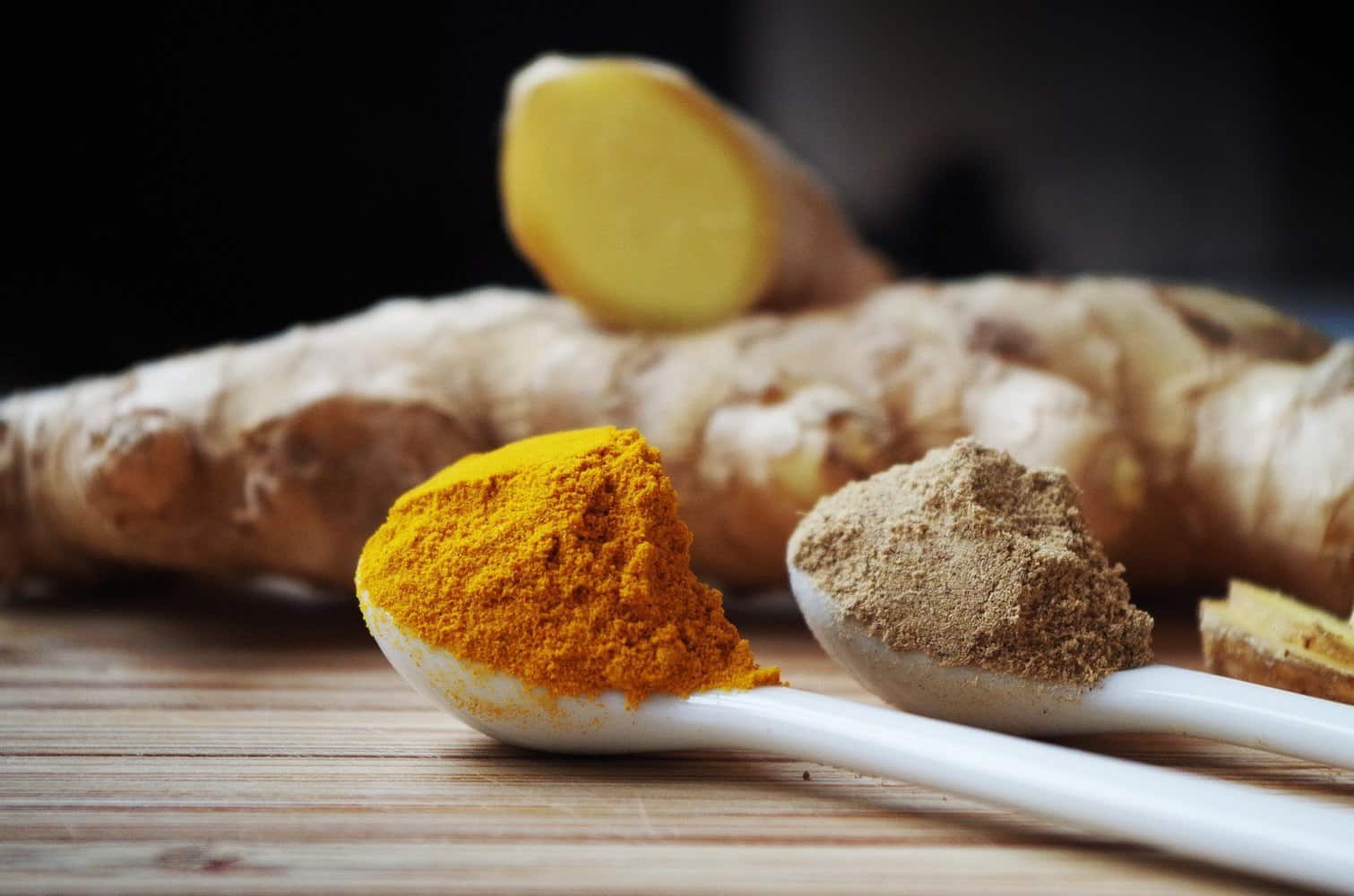
The article goes on to explain that turmeric can relieve the pain and inflammation of gum disease by “preventing the action of a gene that creates gum-irritating chemicals.” This slows the growth of bacteria in your mouth, which helps with bad breath and the spread of periodontal disease.
LiveStrong cites Karta Purkh Singh Khalsa, a member of the American Herbalists Guild, of saying that turmeric mouth packs work amazingly for periodontal disease.
To create a mouth pack, create a paste out of pinch of turmeric powder with water or vitamin E oil. Apply it each night to affected areas. Another option is to roll the paste into some gauze and leave it tucked in your mouth for a bit.
Salt Water
According to this Top 10 Remedies article, salt has antiseptic and antibacterial properties which make it a great remedy for gingivitis. These properties can actually help reduce inflammation and swelling which is one of the symptoms of gingivitis. It is also know to extract infection from any abscesses as well as decrease bacteria growth in your mouth.
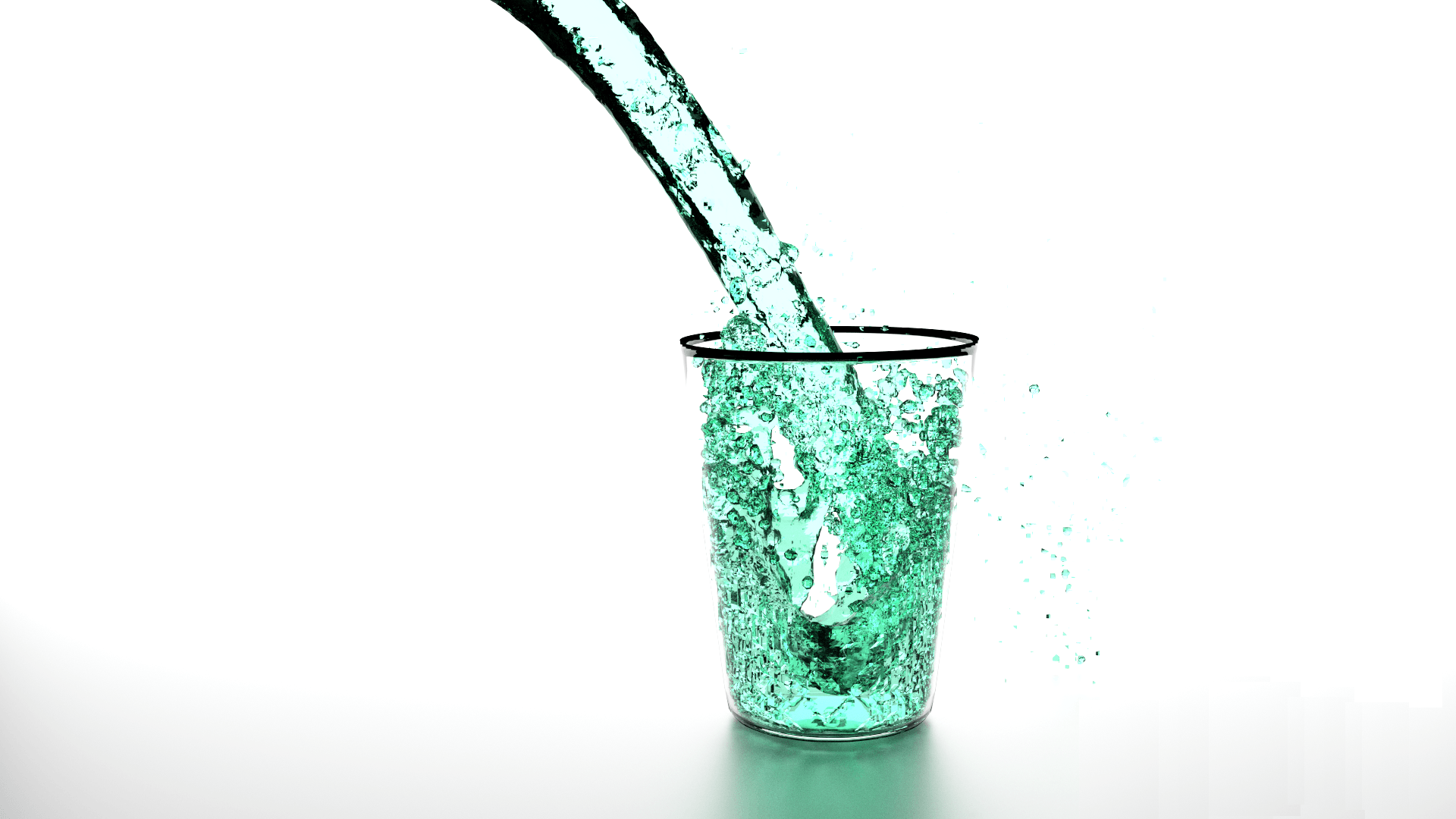
To get the correct salt water concoction, Top 10 Remedies suggests mixing a ½ teaspoon of salt to a glass of lukewarm water and swishing it around your mouth once in the morning and once in the evening until swelling has decreased.
They say you can also take it a step further and mix ½ teaspoon of salt with just enough mustard oil to make a paste. Place some paste on your gums and massage in a circular motion for a minute or two. You should then rinse the excess away with warm water. They say to try this treatment two to three times daily for a few days.
Keep in mind you don’t want to use salt too excessively as over time it can actually weaken your teeth.
Final Thoughts
As you can see, there are so many products you likely already have in your home that can help you with preventing and treating gingivitis. Luckily for my husband, after just a few weeks of better oral care and implementing some of these all-natural practices at home, his dental hygiene is back to normal.
I love living in a world where we can use natural things around us to heal our own bodies. It’s such an amazing thing.
Have you ever suffered from gingivitis? What was your experience like and how did you successfully treat it? I’d love to hear about it in the comments below, especially if you found success with an all-natural method.
Sources: 1, 2, 3, 4, 5, 6, 7, 8, 9, 10, 11, 12, 13, 14, 15, 16, 17
Leave a comment